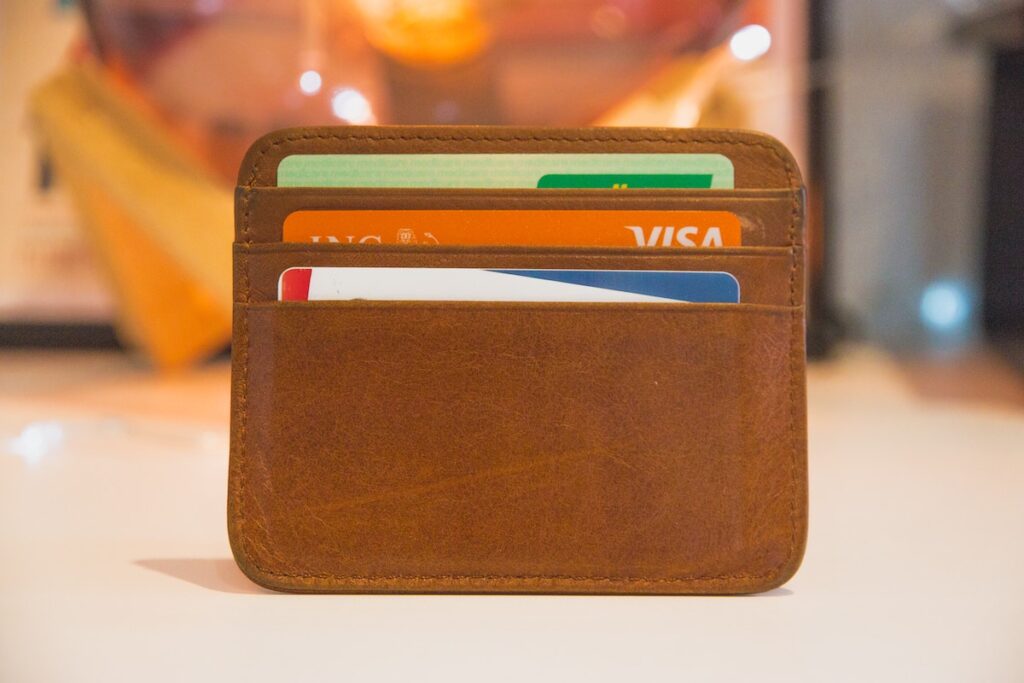How to build healthy finance habits
Money is often a taboo subject, something we daren’t discuss in social settings, and can even feel a great deal of shame about. At times, we might find ourselves living paycheck to paycheck, dipping into our savings, or even checking in at the bank of mum and dad. I know I’ve been in that queue once or twice.

Knowing exactly where our money is coming from each month might not always be a given and, if the past year has taught me anything, it’s that understanding my finances can help me feel more in control, and a rainy day fund is actually essential. Often, our finances underpin how we measure our safety, security, and even happiness to an extent.
“Most of us want a better life and desire more security. Having healthy finances can help you acquire both,” says life coach Ayesha Giselle Dornelly, who’s qualified in personal finance management. “To become better in your finances requires discipline, good money habits, and a solid structure.”
So, to take back control, let’s look at three key steps Ayesha Giselle suggests to help build better finance habits, whatever budget you’re working with.
1. Determine your current financial situation
This means understanding your total monthly income, your outgoings, and a forecast of your financial future. You can’t tackle your finances without a clear picture of every penny, so in this instance, facing reality is key. I know this is difficult – the phrase, “I just don’t know where my money is going,” was no stranger to my younger self – so take a deep breath, and be brave.
“Firstly, figure out how much you make on a monthly basis,” says Ayesha Giselle. “This should cover all sources of income, regardless of the size. Next, make a list of your expenses. Be precise, and list down every single expense no matter how small. Take your time with this, using your last three months to work out your averages. Sorting expenses into categories can help so you can see exactly where your money is going.
“No matter how frustrating and long-winded this is, it’s one of the most crucial steps in understanding your financial situation, and can make or break your budgeting plan.”
Once you have a clear idea of your spending, be honest with yourself and remove any expenses that you really don’t need, and note where you could reduce spending.
Embracing financial discipline will help bring back control.
The final step in this process is determining what your financial future looks like. “How would it look if you don’t create a budget and continue spending – how will this affect your family, your life, what would happen if you had a financial emergency?” Ayesha Giselle says.
“Being aware of your financial situation gives you the power to improve your circumstances – when you know where you are, you will be able to assess what you need to do to get to where you want to be.”

2. Allocate your money before you get paid
It’s often hard to hear this, particularly if you spend a lot of time in your overdraft, and feel like your monthly wage packet is already spent before it reaches your account. But embracing financial discipline will help bring back control.
“Firstly, separate your money into different categories: income, bills (essential and necessary payments), pocket money (entertainment, gym, all unnecessary spending), emergency (for emergency only), savings and business,” says Ayesha Giselle. “Make sure the money you allocate makes sense, keep your total expenses lower than your income, and keep your priorities in order.”
Ayesha Giselle also suggests the following priority: bills, emergency, pocket money, savings and business. “Open an account for each of these categories, and set up automation from your income account to your other accounts.”
In this case, discipline is key to your success and you should only use the money in each account for its intended purpose. Be strict with yourself, what really constitutes an emergency? It can be tough to watch your emergency fund build-up when your pocket money dwindles within a few days, but try to determine a real emergency, for example, the difficulties that 2020 brought. It makes the emergency fund far less tempting when we have a real-life example to put things into perspective.
3. Differentiate between true need and desire
Again this step is about discipline, and getting clarity on what the words ‘want’ and ‘need’ actually mean. If you can’t differentiate between the two, use this: want is something I desire, need is for personal survival, health, and shelter.
“If you need it, get it. If you want it, ask yourself ‘why?’ Your ‘why’ may turn out to be based on an unmet need – if this is the case, try to meet those needs with a healthy alternative that doesn’t break the budget,” Ayesha Giselle explains. “You could be spending because you’re lonely, so what other ways can you meet your need for connection? Pick up the phone, meet a friend for a walk, join a community on Meetup to connect with others.
“If this doesn’t feed your craving, and you still find that you really want this thing, try asking yourself if you can afford it three times over. If you can and it doesn’t affect your budget, then get it (you do deserve a treat once in a while).”
Ayesha Giselle recommends reviewing your finances each month to ensure you stay on track so that you can prepare for, plan, or stop any spending that doesn’t fit your framework.

How to manage joint financial commitments
Once you’ve got your own budget singing, you’re equipped to tackle trickier budgeting. And when it comes to joint commitments, money can really be a third party in any relationship – particularly if one partner is more budget savvy than the other.
Ayesha Giselle says it’s all about honesty. “Create a safe space for both of you to express your needs and your worries. Discuss your strengths and weaknesses when it comes to money management. Get clear on what your current financial situation is, then discuss your short, medium, and long-term goals.”
It’s key at this point that you and your partner agree on future financial ideals. “Collectively work together to create a plan to help you achieve your short-term goals, then medium and long-term goals,” Ayesha Giselle says. “Remember you are a team, so work together as a team – be supportive and encourage each other to do better, as well as take accountability.”
Money, or lack of it, is a complicated business. So whether you’re splashing the cash or feeling the pinch, budgeting can bring a sense of control and stability, particularly in the current sea of uncertainty.
3 saving tips
- A simple, stress-free approach to saving is automating things by using apps that round up change and save it without you noticing. Try apps Acorns or Qapital.
- Automate your allocated monthly saving fund from your income account. By doing this you’re less likely to forget, and the bank will save your money before you accidentally spend it.
- Make it difficult to access your savings by opening an ISA or savings account which requires you to write in advance to access the money. This will deter you from taking the money out unless you really need it.
Ayesha Giselle Dornelly is a life and accountability coach working with change-seekers. Find out more about how financial coaches can support money worries in our article 5 ways a coach can help you manage your money.
If you need help getting your finances in order and are ready to reach out to a coach, find Ayesha and many more professional coaches using the search tool.
This piece was originally published in the April 2021 issue of Happiful magazine, to purchase your copy, visit shop.happiful.com.

Find a coach dealing with Finances
All coaches are verified professionals


